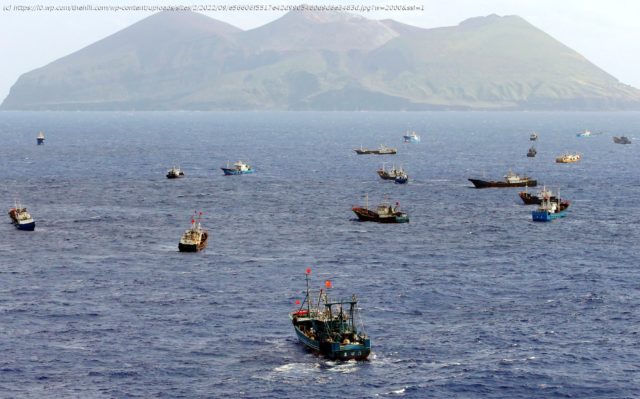Array
Even as states and conservation organizations are still celebrating the new United Nations treaty that hopefully will protect 30 percent of the high seas, China is working, in plain sight, to take sovereign control of the world’s oceans.
The global presence of China’s “distant water fishing fleet” has garnered substantial attention, particularly since its heightened visibility around the Galapagos Islands in 2020. Most of that attention has centered on concerns about sustainability and allegations of illegal, unreported and unregulated fishing. In many cases, however, China’s activities have been on the high seas, making such fishing arguments limited at best, since no state can claim sovereignty over the living marine resources outside of its Exclusive Economic Zone.
Ironically, however, it seems that is exactly what China wants: sovereignty over the high seas. What perhaps has been the most overlooked aspect of the distant water fishing fleet is China’s express strategy — since at least 2010 — to occupy the oceans in an effort to gain “rights and interests.” In other words, China likely believes that, in time, the presence of its distant water fishing fleet on the high seas will convert into some degree of sovereign control over those waters and the resources in them. Put differently, China is working to gain ownership of the oceans through adverse possession.
The doctrine of adverse possession does not actually exist in maritime law. An Anglo-American property law concept, it is sometimes known as “squatter’s rights” and allows for an individual to obtain the legitimate, legal title to real estate simply by occupying that property for an extended period of time without the permission of the real owner. Each jurisdiction has slight variations, particularly with regard to the length of time required to obtain these real property rights and interests. Most, however, contain similar elements. In Maryland, for example, the requirement is that the individual engage in “actual, open, notorious and visible, exclusive, hostile and continuous possession.” Not only are those elements similar throughout the United States and the United Kingdom, they are similar throughout most common law jurisdictions.
Through its fisheries policies, it appears that the People’s Republic of China is effectively translating this property law doctrine into a global maritime strategy.






